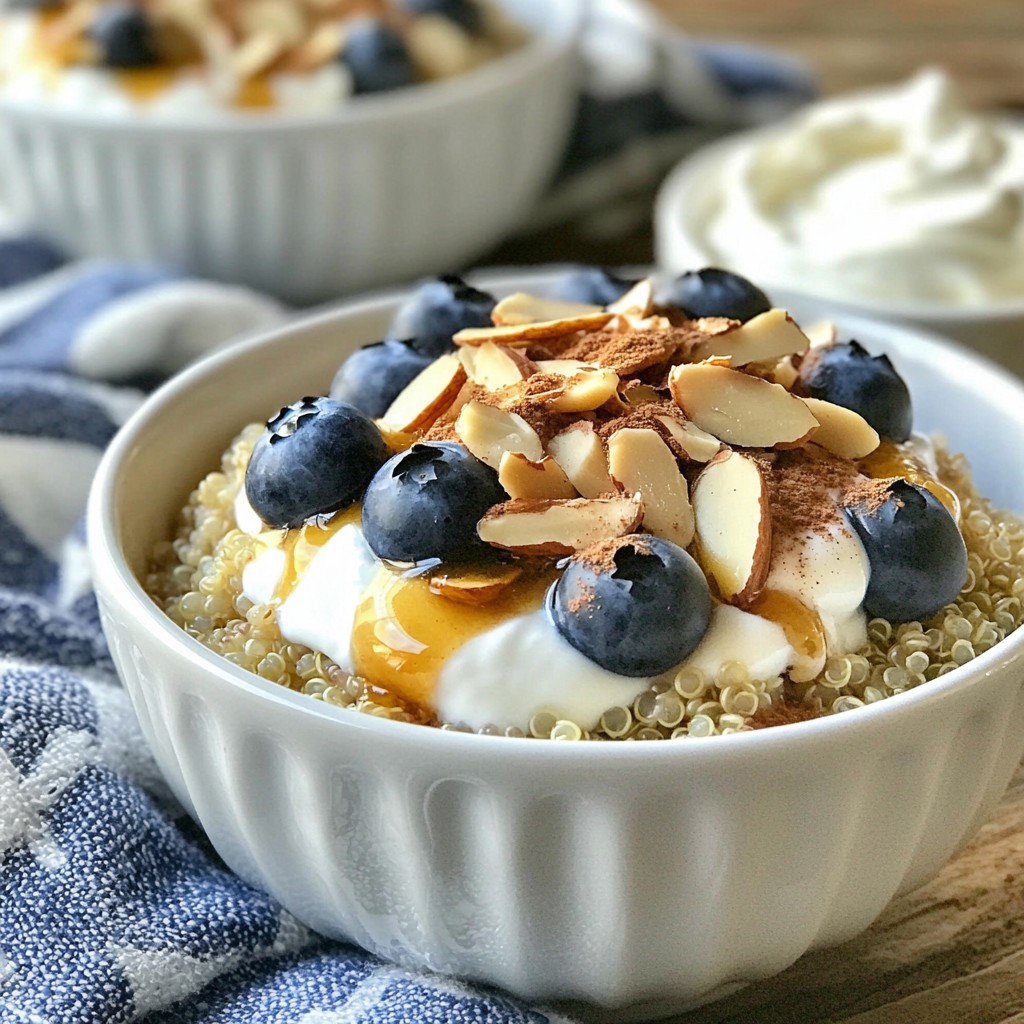Are you ready to savor the rich, creamy goodness of Roasted Butternut Squash Soup? This simple dish warms your soul and is perfect for any meal. I’ll share each step, from prepping ingredients to blending for that smooth finish. Plus, I’ll give you tips to make it extra tasty and ways to store leftovers. Let’s dive into this cozy bowl of comfort that everyone will love!
Ingredients
List of Ingredients
To make roasted butternut squash soup, gather these simple ingredients:
– 1 medium butternut squash, peeled and cubed (approximately 3 cups)
– 1 large onion, finely chopped
– 3 cloves garlic, minced
– 2 tablespoons extra virgin olive oil
– 4 cups low-sodium vegetable broth
– 1 teaspoon ground cumin
– 1/2 teaspoon smoked paprika
– Salt and freshly ground black pepper, to taste
– 1/2 cup coconut milk (for a vegan option) or heavy cream (for a non-dairy alternative)
– Fresh parsley or cilantro, chopped, for garnish
Ingredient Substitutions
If you need to make changes, here are some swaps:
– Butternut Squash: You can use pumpkin or sweet potatoes instead.
– Olive Oil: Avocado oil or melted coconut oil works well too.
– Vegetable Broth: Chicken broth can be used for extra flavor.
– Coconut Milk: Use almond milk or cream for a lighter version.
– Spices: Try curry powder instead of cumin for a different taste.
Pantry Staples for Soup Making
When making soup, having some staples on hand helps. Here’s what you should keep in your pantry:
– Onions: They add sweetness and depth to any soup.
– Garlic: Fresh garlic boosts flavor and aroma.
– Broth: Always keep vegetable or chicken broth for a solid base.
– Spices: Cumin, paprika, and pepper can change the soup game.
– Oils: Olive oil or any cooking oil helps with sautéing.
These ingredients and tips will help you create a warm, comforting bowl of roasted butternut squash soup.
Step-by-Step Instructions
Prepping the Butternut Squash
To start, you need to peel and cube your butternut squash. Aim for about three cups of cubes. This will make the squash cook evenly. Once cubed, place the squash in a bowl. Drizzle two tablespoons of olive oil over it. Add salt and pepper to taste. Toss well to coat each piece. This simple step will help the squash roast perfectly.
Cooking the Aromatics
While the squash roasts, it’s time to cook the aromatics. Heat one tablespoon of olive oil in a large pot over medium heat. Add one finely chopped onion. Sauté for about five to seven minutes. You want the onions to be soft and translucent. Next, add three minced garlic cloves, one teaspoon of ground cumin, and half a teaspoon of smoked paprika. Stir everything for one minute. This will release the lovely aromas and flavors.
Blending and Adjusting Consistency
After roasting, add the squash to the pot with the onions and garlic. Pour in four cups of low-sodium vegetable broth. Stir to combine everything well. Increase the heat slightly and let it simmer uncovered for about ten minutes. This helps the flavors meld together. Once done, remove the pot from heat. Use an immersion blender to puree the soup until smooth. If you don’t have one, carefully transfer batches to a standard blender.
Stir in half a cup of coconut milk for creaminess. Taste and adjust the seasoning if needed. If the soup is too thick, add more broth or water until it reaches your desired consistency. Your soup is now ready to enjoy!
Tips & Tricks
Best Roasting Techniques for Flavor
To get the best flavor from your butternut squash, start with the right temperature. Roasting at 425°F (220°C) helps caramelize the squash, which adds sweetness.
– Cut Uniformly: Make sure to cut the squash into even pieces. This helps them cook at the same rate.
– Use Enough Oil: Drizzle enough olive oil to coat each piece. This keeps them from drying out.
– Don’t Overcrowd the Pan: Use a large baking sheet. Spacing the pieces allows them to brown well.
How to Achieve a Creamy Texture
For a creamy soup, the blending step is key. Once your squash is roasted, follow these tips.
– Use an Immersion Blender: This tool lets you blend the soup right in the pot. It’s quick and easy.
– Add Cream or Coconut Milk: Stir in coconut milk or heavy cream. This adds richness and smoothness.
– Adjust Consistency: If the soup is too thick, add more broth. Keep it creamy but not too runny.
Serving Suggestions for Roasted Butternut Squash Soup
Presentation makes your soup even more inviting. Here are some ideas to serve it.
– Warm Bowls: Start by warming your bowls. This keeps the soup hot longer.
– Garnish Smartly: Add a swirl of coconut milk on top. Sprinkle fresh parsley or cilantro for color.
– Pair with Bread: Serve with crusty bread or croutons. They add crunch and balance the soup’s creaminess.
Follow these tips, and you will enjoy a delicious bowl of roasted butternut squash soup.

Variations
Vegan and Dairy-Free Options
You can easily make this soup vegan and dairy-free. Simply use coconut milk instead of heavy cream. The creaminess from the coconut milk adds richness without dairy. You can also skip the cream and adjust the broth for a lighter soup. Use vegetable broth for added depth. This keeps the flavors bright and fresh, perfect for any meal.
Adding Protein to the Soup
Want to make the soup heartier? Add protein! You can mix in cooked lentils or chickpeas. Both options are healthy and tasty. If you prefer meat, try adding shredded chicken or turkey. Just stir the protein in after blending the soup. This simple step turns your soup into a full meal.
Flavor Enhancements and Spices
You can elevate the flavor of your soup with spices. Try adding a pinch of nutmeg or cinnamon for warmth. Red pepper flakes can add a nice kick. Fresh herbs like thyme or sage also work well. Just sprinkle them in while cooking. These small changes can make a big difference in taste.
Storage Info
How to Store Leftover Soup
You can store leftover soup in an airtight container. Let the soup cool first. Then, cover it tightly and place it in the fridge. It stays fresh for up to four days. If you want to keep it longer, freezing is a great option.
Reheating Instructions
To reheat the soup, pour it into a pot. Heat it over medium-low heat. Stir often to avoid burning. You can also use the microwave. Place the soup in a microwave-safe bowl and cover it. Heat in short bursts, stirring in between, until warm.
Freezing Roasted Butternut Squash Soup
To freeze the soup, let it cool completely. Then, pour it into freezer-safe bags or containers. Leave some space for expansion. It keeps well for up to three months. When you’re ready to enjoy it, let it thaw in the fridge overnight. Then, reheat as needed.
FAQs
Can I use frozen butternut squash?
Yes, you can use frozen butternut squash. It is a great time-saver. Just make sure to thaw it before roasting. If you skip this step, your soup may turn out watery. You can add it straight to the pot with the onions and garlic. Cook it a bit longer to ensure it’s tender.
How do I make it spicier?
To add some heat, try these options:
– Add a pinch of cayenne pepper.
– Stir in some diced jalapeños.
– Use a spicy chili powder.
These will give your soup a nice kick without overpowering the flavors.
Can I blend the soup ahead of time?
Absolutely! You can blend the soup a day in advance. Just store it in the fridge. When you are ready to serve, gently reheat it on the stove. If it thickens too much, add a splash of vegetable broth. Your soup will still taste fresh and delicious.
In this post, I shared how to make delicious roasted butternut squash soup. We discussed the best ingredients, substitutes, and pantry staples. I detailed simple steps to prep, cook, and blend your soup. You learned tips for roasting and achieving that creamy texture. We also explored variations, storage info, and answered common questions.
Now, you have all the tools to create this tasty dish. Enjoy experimenting with flavors and serving it to loved ones. Happy cooking!




